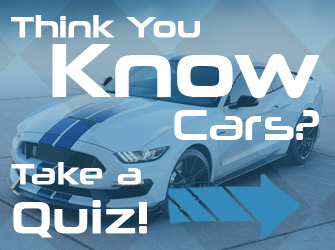Electric Cars are Shattering 0-60 records – Here’s Why

Four wheels touching the ground, one to change direction, a power unit and a chassis to keep it all together. That’s how you’d describe the earliest car in history. However, as the first cars were finding their way to the public, the race for the fastest and the most powerful vehicle was already underway.
As time has passed and cars have become faster, combustion powered cars have begun to show signs of reaching their technical limits for speed and acceleration. Vast improvements are probably not going to happen any time soon, if at all, for these traditional combustion engines. Instead, we’ll likely see new groundbreaking improvements to hybrid and EV tech.
For about a decade now, electric cars are taking over the grid. While at first there were plenty of issues to overcome, such as mileage, overheating and charging time, we regularly see electric cars, and recently, electric supercars shattering speed records.
And while top speed numbers may still reside in the combustion playground, when it comes to acceleration, there is no production car fossil fuel engine out there that can match the sprint of an electric motor.
Before we go ahead and have a look at why makes electric cars go so fast, let’s go through some of the best acceleration records of these silent sprinters.
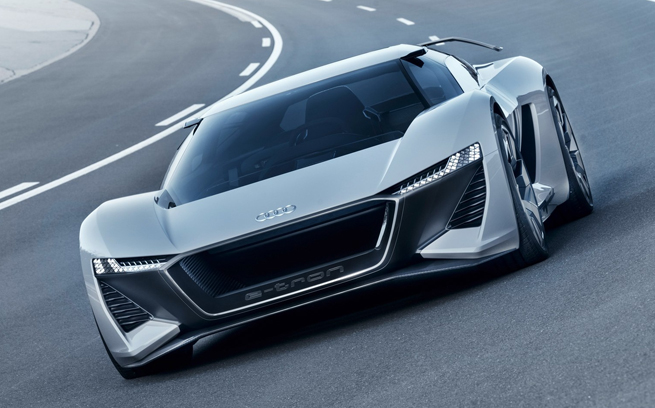
Best electric car acceleration times
In 2014, the highly-limited Rimac Concept One used its four electric motors to set a 2.4s acceleration time from 0 to 60 mph. The car was considered to be the fastest electric car at the time, pushing 1,224hp and 1,180 lb-ft of torque to the ground. Its top speed is electronically limited to 211mph. Merely eight units were sold with one is famously known to have been crashed by Top Gear star Richard Hammond while shooting scenes for the show.
Later on, in 2017, Tesla, the Palo Alto CA-based automotive and energy company owned by billionaire Elon Musk revealed the Model S P100D. With an initial promise to provide a 0-60 mph time of 2.5 seconds, the car was to shatter all its competitors within its price range. Furthermore, the 2.5-second mark would also put to shame a few quarter, half-million and million-dollar models.
It the end, it was proven that the P100D was actually capable of reaching 60 mph in just 2.275s in dry asphalt conditions. This was achieved via the Ludicrous+ mode which was provided as an Easter Egg by Tesla.
Not only that Tesla Model S P100D managed to over-deliver on its promise, it was also the first production car ever to go below 2.3 seconds in 0-60mph.
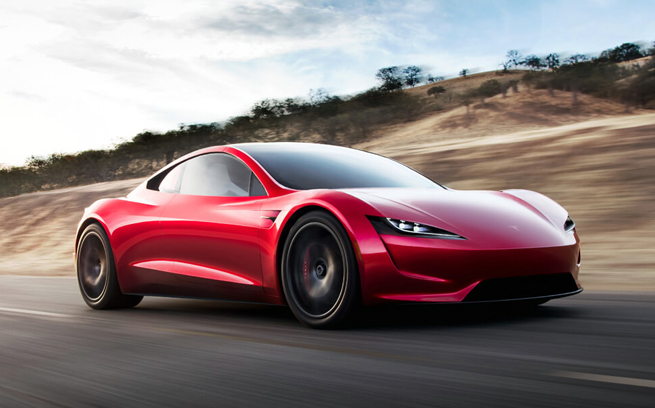
On November 22nd 2017, Elon Musk unveiled the Tesla Roadster concept alongside the first large scale electric truck. Among the data fed to the public, Elon Musk made a bold promise: the 2020 Tesla Roadster will be the quickest accelerating factory car in the world with a 0-60mph time of under 2 seconds. Is this even possible? Some think that Tesla may need to introduce on a new tire technology in order to achieve this as current road tires could struggle to gain enough grip, even top-notch street legal drag radials.
Or, is it? In February 2018, the Chinese-built Aspark Owl went on to take on Tesla’s claims by actually taking a shot at the record. What Top Gear magazine describes as “ridiculous performance” is the OWL’s ability to reach the 60 mph mark in a little over 1.9 seconds, using what seems to be custom-made Hoosier racing tires.
And while the record isn’t really fair since OWL ran on full slicks, it does show the huge capability of electric cars to blast off from a standstill, subjecting the driver to roller-coaster like g-forces.
The Rimac Concept One was a quick car on its own. However, the new C_Two (yes that’s a strange name) promises to take electric power to a new level. With an estimated 1,888 HP, 1,696 lb-ft of torque and as much carbon fiber as an F1 car, the Rimac C_Two is designed entirely from the ground up.
And the numbers just keep pouring: 398 miles of range between charges, a top speed higher than the Bugatti Veyron (256 mph) and manufacturer claimed 1.85 seconds from 0 to 60 mph. Again, we are yet to see whether the Rimac C_Two will feature street-legal tires or whether the record will be achieved on grippier racing slicks.
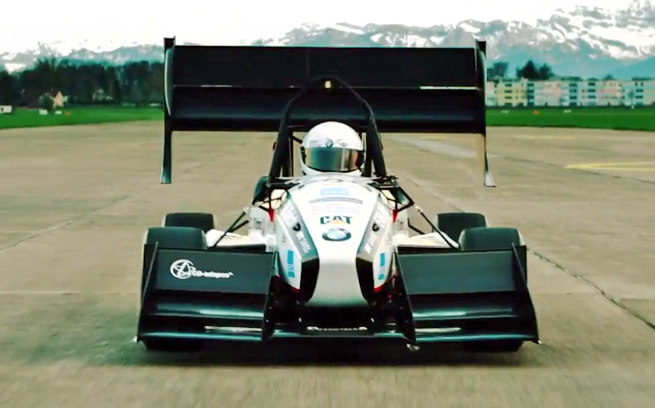
However, the top electric car acceleration record-holder comes from a place you wouldn’t quite expect. Among companies million-dollar investments and decades of research rests a team of 30 students from Academic Motorsports Club Zurich (AMZ). Every year, the team builds a new Formula car to participate in Formula Students, the largest inter-academic competition in the world. Back in 2016, the “Grimsel” electric car required just 1.513 seconds to reach the 60-mph mark. According to ETH Zurich representatives, the 2016 “Grimsel” is the team’s most successful car to date. Can you imagine what one and a half seconds to sixty feels like?
How do electric cars accelerate so F-ing fast?
First, let’s have a look at what is required in order to achieve such extraordinary acceleration numbers. It’s a given that both combustion and electric vehicles may use the same type of tire and wheels, so this is removed from the equation. The difference is actually made within the powertrain, particularly by power and torque. Between the two, torque has the most impact when it comes to acceleration.
To put it in layman’s terms, torque is the measurement of how hard the engine or motor of a car is able to push against the tarmac. Obviously, the more torque the motor can supply, the faster the car will accelerate.
On the other hand, power can be looked at as the amount of power the motor provides to the already forward motion of the vehicle. Power has a great deal of influence over top speed. You may even consider power as a function of torque over time, however it’s not a linear relationship and gets complicated as numbers increase.
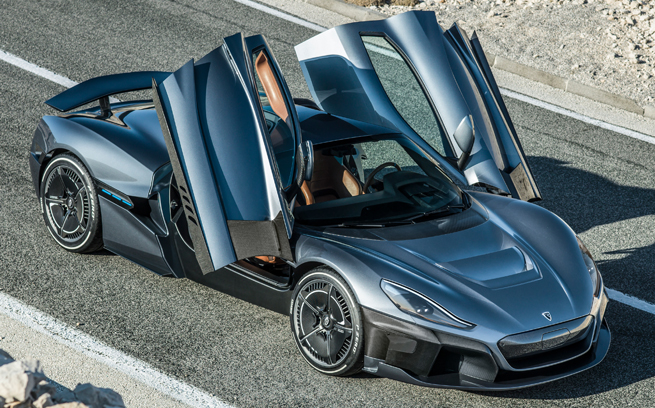
Back to torque. Just like power, torque is attained by transforming energy into motion. In the case of electric cars, the energy is stored closely in batteries and ready to be used in an instant. This is why electric motors are able to build up torque extremely fast (usually known as instant torque). On the downside, there are some heavy limitations imposed by the electric system. Although electric cars reach peak torque quickly, the value drops as soon as the power cap is attained.
Gas engines on the other hand need to mix fuel and air in order to create energy. And while fuel can be fed as quickly as you wish, air needs to be sucked into the combustion chamber. That’s why most high-performance cars use one or more turbochargers or superchargers. These forced induction systems are able to push more air into the engine, allowing for more fuel to burn and thus generate more usable energy. The amount of air being sucked into the engine is directly proportional with the engine speed – thus, combustion engines increase torque output as the revs increase, taking more time to put the power down and accelerate.
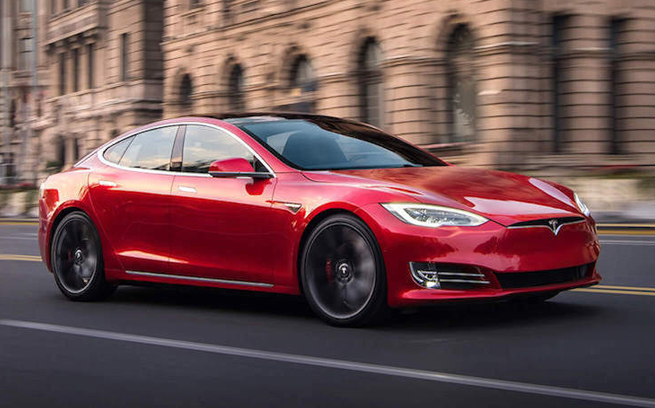
The initial “bite” in acceleration definitely goes to electric cars. Unfortunately, as mentioned before, the torque and power ratings suddenly plunge as the electric system reaches its capabilities. This is why although an electric car such as Tesla Model S may have the second fastest 0-60 mph and only rate as the 10th fastest quarter mile.
One more thing: the gearbox
All conventional combustion engine cars use a gearbox – may it be a manual, automatic or CVT, the car needs a gearbox in order to actually get the car moving from a standstill. This translates in mechanisms that not only generate power losses but will also require time to shift between gears. Although most modern automatic gearboxes shift in a fraction of a second, there is still some time lost compared to the gearbox-less electric motors.
Will there ever be a faster accelerating combustion car?
Doubtful. As the overall market shifts towards adoption of electric vehicles, there is little chance we will get to see another internal combustion production car dip below the 2-second acceleration threshold. On the other hand, it will be great to see just how fast can an electric car accelerate; will we ever be able to beat 1.5s and keep the driver conscious?



















